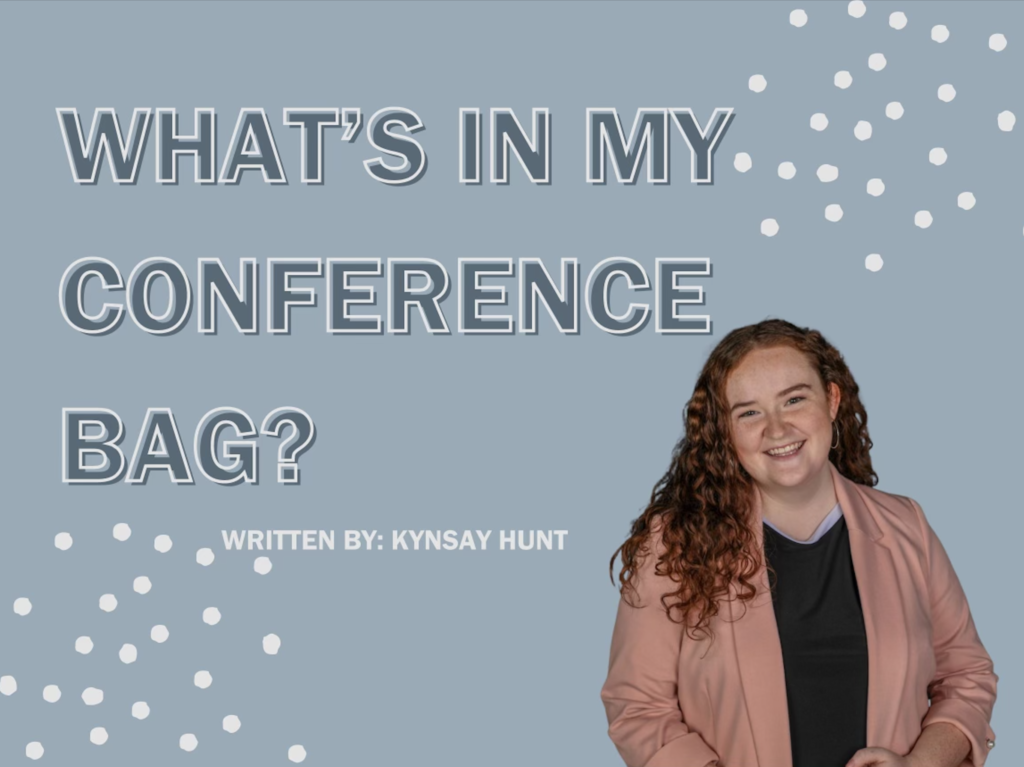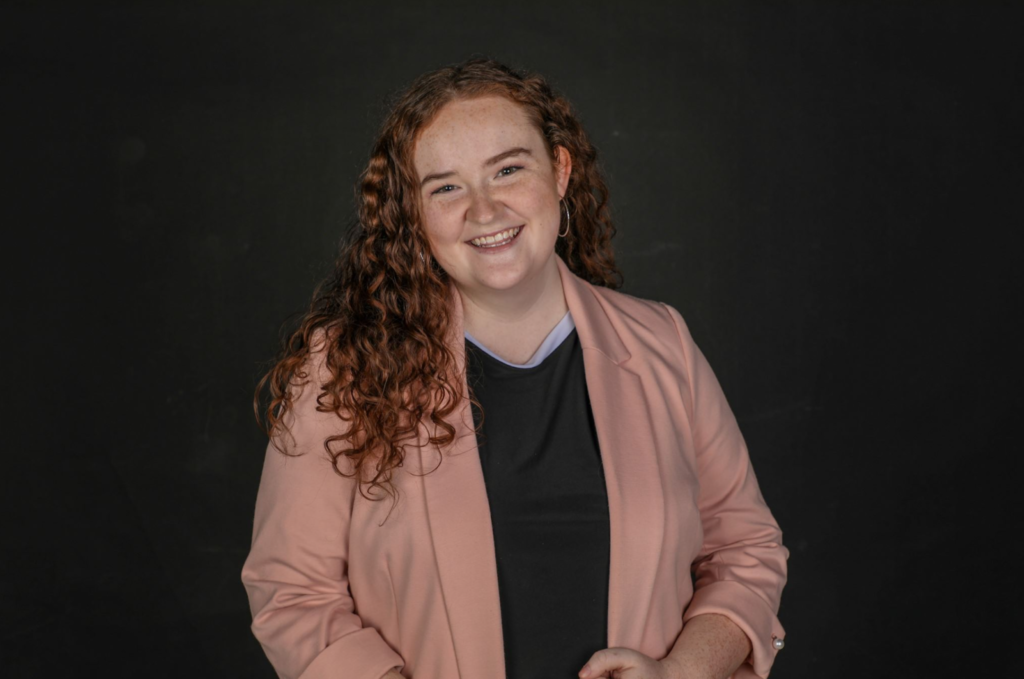What’s in my Conference bag?

Picture this: you’ve registered to attend your first PRSSA ICON and already decided which business professional outfit you’re going to wear. Now all that’s left to do is to learn as much as you can from your peers, guest speakers, and future colleagues.
You get to Texas, and you’re ready to learn, but then you realize you forgot a notepad. And a pen. And probably something else, too.
Preparation is key to making the most of your Conference experience.
So today, I’m here to give you the scoop on everything you should and shouldn’t bring to a Conference, coming from someone who’s both attended and planned a District Conference.
Spoiler alert: you definitely need a bag (or a satchel, briefcase, purse, etc.) to put all of this in.
- Something to take notes with.
I didn’t pack a notebook when I attended my first Conference, and it was a huge mistake.
I had no way of taking notes during sessions except with my cell phone, which gave the illusion that I wasn’t engaged. Out of fear of giving off the wrong impression, I didn’t take notes at all. Now, three years later, I can barely recall what I learned in those sessions with some of the best in the industry.
You don’t have to bring a paper notebook, but I would highly recommend bringing something to take notes with — a laptop, tablet, or really anything but your cell phone.
- A water bottle.
This one might be self-explanatory, but it’s essential. Between networking events, lunch breaks, one-on-one conversations with speakers, and more, you’ll be doing a lot of conversing. Inevitably, your mouth will get dry and dehydration may set in, which are both things we want to avoid.
- A stack of business cards.
I know what you’re thinking: “I’m in college. Why would I have a business card?” Here are three reasons you should bring a small stack of cards with your name, PRSSA Chapter, personal email, phone number, and LinkedIn profile link:
- You’re going to meet a lot of people. I can guarantee you won’t have time to type out each and every person’s contact information in the moment, so business cards are a quick way to exchange information to connect more deeply after the Conference.
- You want to leave space for real, human connections. Even if you did have enough time to type out contact information, you don’t want to spend half a conversation with someone buried in your phone screens typing in the other person’s LinkedIn profile. Bringing a business card allows you to spend that time actually getting to know the people you’re meeting.
- Business cards show you’re proactive. When you connect with keynote speakers, agency representatives, graduate school professors, PRSA members, and more, they will likely have business cards to give you. Having one to give back to them shows you came prepared — which also shows you’re proactive — and that’s one of the most appealing qualities in our industry.
Bonus: if you’re a creative, a business card can serve as your mini portfolio. The way you present yourself on such a small piece of paper can show potential employers your talent and creativity.
- A folder filled with resumes.
The reasoning for bringing resumes is similar to that for business cards: it shows you’re proactive, prepared, and eager to learn.
Especially if the Conference you’re attending will host a career fair, you should bring printed versions of your resume. That way, you can spend your time with the recruiter getting your questions answered. They will also then have your resume to reference later, after you’ve made a great first impression solely with your personality and preparation.
- A portable charger.
Depending on whether you attend virtually or in-person, you might not have access to an outlet for some time. Whether you’re planning to take notes with a laptop or tablet, or simply have a short battery life, stay prepared with a portable charger. There’s nothing worse than being tethered to the wall during a session just because you need a quick charge.
- Confidence.
The last, most essential thing to bring to ICON is confidence.
Be confident in your speaking abilities, networking skills, and what you’ve accomplished so far in your college career. Just by registering to attend this Conference, you’ve already shown you’re ready to take steps to land your dream job once you graduate. Be confident in that fact.
And at the end of it all, walk away confident in the knowledge you’ve learned and the people you’ve met. Then gear up for the next step: maintaining connections!

Kynsay Hunt is a Junior Associate of Client Experience at Weber Shandwick, where she supports clients across the Seattle office’s corporate, social impact and technology practices. She obtained a bachelor’s degree in public relations from the University of South Carolina, where she served as VP of Programming, Conference Director and Graphic Design Coordinator at UofSC PRSSA. Connect with Kynsay on LinkedIn.
